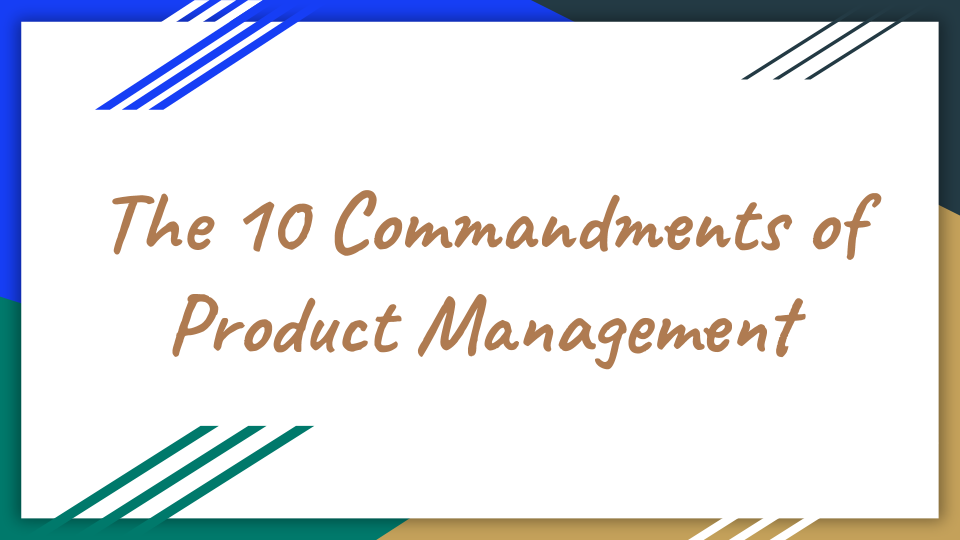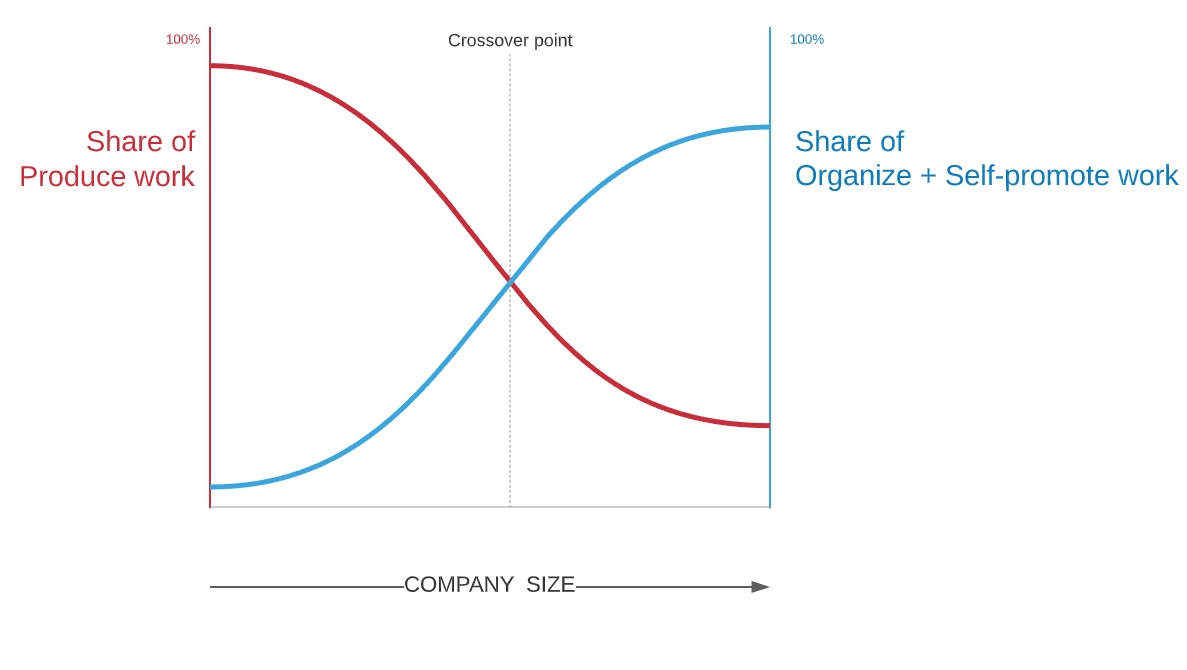
1/
Thou shall focus on The User.
Thou shall focus on The User.
2/
Thou shall not optimize for product outputs. Thou shall optimize for business outcomes.
Thou shall not optimize for product outputs. Thou shall optimize for business outcomes.
3/
Thou shall not drop the name of the CEO in vain.
Thou shall not drop the name of the CEO in vain.
4/
Thou shall remember to build high agency, embody deep care, exude optimism, practise kind candor, and aspire to low ego.
Thou shall remember to build high agency, embody deep care, exude optimism, practise kind candor, and aspire to low ego.
5/
Thou shall honor that product management is part art, part science and aspire to be skillful in both.
Thou shall honor that product management is part art, part science and aspire to be skillful in both.
6/
Thou shall take the necessary time to understand the real problem before starting to solve it. Thou shall not confuse Execution problems with Strategy problems, Culture problems, or Interpersonal problems.
Thou shall take the necessary time to understand the real problem before starting to solve it. Thou shall not confuse Execution problems with Strategy problems, Culture problems, or Interpersonal problems.
7/
Thou shall put The User first, company next, team after that, and then thyself. Thou shall trust that this will lead to better long-term outcomes for thyself than any other ordering.
Thou shall put The User first, company next, team after that, and then thyself. Thou shall trust that this will lead to better long-term outcomes for thyself than any other ordering.
8/
Thou shall build influence with thy communication: spoken, written, but above all, listening.
Thou shall build influence with thy communication: spoken, written, but above all, listening.
9/
Thou shall first work hard to not fool thyself. Thou shall then work to not let thy team get fooled.
Thou shall first work hard to not fool thyself. Thou shall then work to not let thy team get fooled.
10/
Thou shall not blindly follow any product commandments, rules, processes, templates including these 10 commandments. Thou shall consider thy current context as paramount.
Thou shall not blindly follow any product commandments, rules, processes, templates including these 10 commandments. Thou shall consider thy current context as paramount.
Back to the top of this thread:
https://twitter.com/shreyas/status/1335790461907214337
Related threads👇🏾
Why good prod mgmt matters
https://twitter.com/shreyas/status/1274430724959907840
The essence of prod mgmt
https://twitter.com/shreyas/status/1254064006412656640
Good PM / Great PM, probably my most significant contribution to the field of product management
https://twitter.com/shreyas/status/1249039638829793280
A mega-thread on principles, tactics, and mindset for clear thinking, so we don’t fool ourselves
https://twitter.com/shreyas/status/1315543407331213314
The essence of PM leadership
https://twitter.com/shreyas/status/1284499367383035904
PM Skills Map
https://twitter.com/shreyas/status/1264621650663727104
Some principles for product work
(including several unorthodox ones)
(including several unorthodox ones)
https://twitter.com/shreyas/status/1313539331563298817
Book recos by PM level
https://twitter.com/shreyas/status/1319377310722605057
• • •
Missing some Tweet in this thread? You can try to
force a refresh




